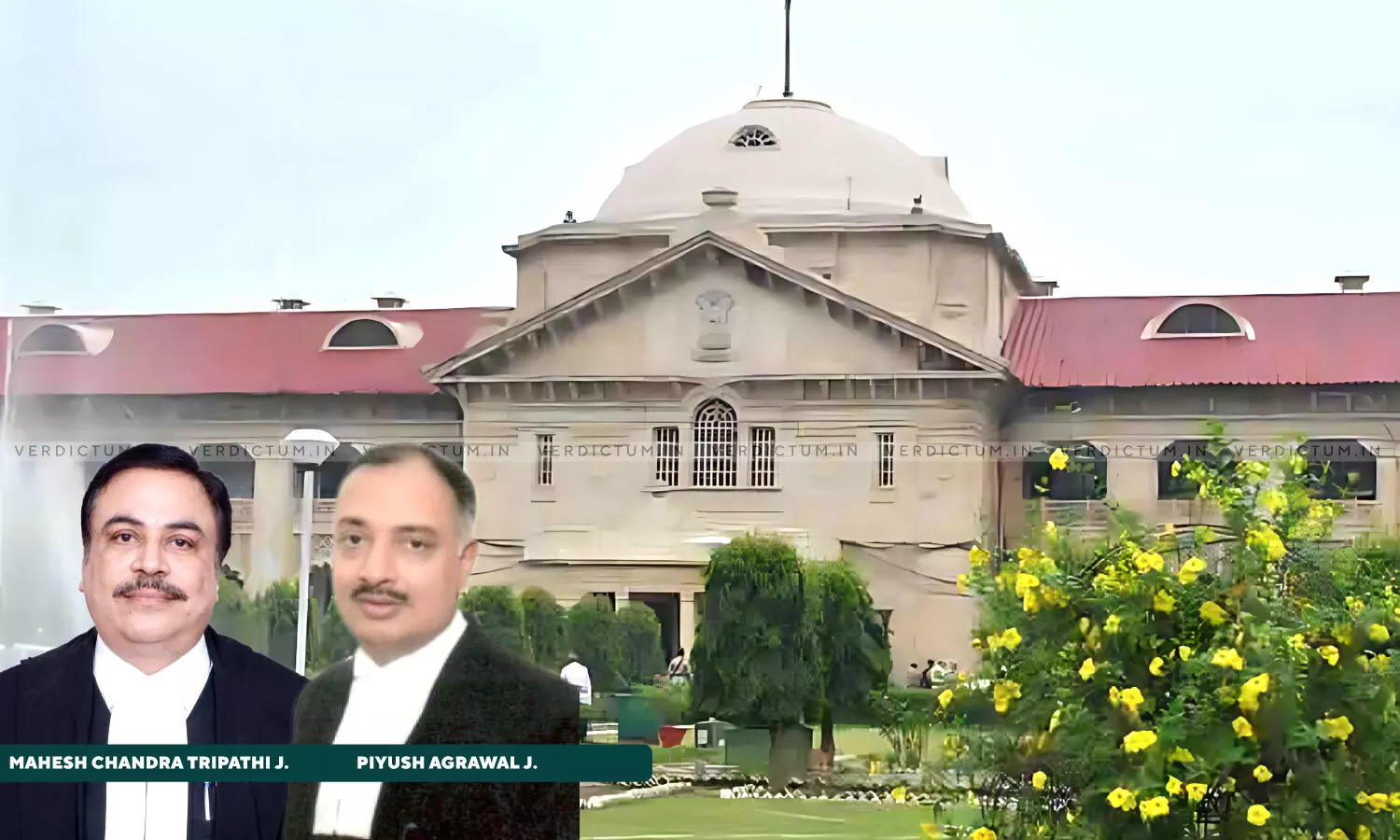
Review Petitions Have Limited Purpose; Error Should Be Grave And Palpable: Allahabad HC
 |
|The Allahabad High Court has reiterated that a review petition has a limited purpose and cannot be allowed to be "an appeal in disguise".
A Division Bench of Justice Mahesh Chandra Tripathi and Justice Piyush Agrawal said, "It is by now settled that neither review court can examine the merit of the judgment as an appellate court nor in the garb of review petition, re-hearing of the matter can be permitted by this Court." adding that review applications can only be heard on the grounds mentioned in Order 47 Rule 1 read with Section 141 of the Code of Civil Procedure.
The Court said that, to entertain a review application, the error should be "grave and palpable" and apparent on mere looking of record, without requiring any long drawn process of reasoning. Reappraisal of entire evidence for finding the error would amount to exercise of appellate jurisdiction, it observed.
The Court further said, "The party must satisfy the Court that the matter or evidence discovered by it at a subsequent stage could not be discovered or produced at the initial stage though it had acted with due diligence. A party filing a review application on the ground of any other "sufficient reason" must satisfy that the said reason is analogous to the conditions mentioned in the said provision of C.P.C."
Advocate Jai Shanker Misra appeared for the Petitioners and Advocate Kaushalendra Nath Singh appeared for the State of Uttar Pradesh.
The case pertains to the state government acquiring land in different villages of the Gautam Buddha Nagar district, including the land of the Petitioners. The Petitioners invoked the writ jurisdiction of the High Court seeking a direction to Chief Executive Officer, New Okhala Industrial Development Authority (NOIDA) to pay higher compensation. A Division Bench of the Court dismissed the Writ Petition noting that a Full Bench of the Court had previously dismissed Writ Petitions pertaining to acquisition of land in the same village as that of the current Petitioners. The Court held that the Division Bench that delivered the impugned Judgment had considered "each and every aspect of the matter" and dismissed the review application.
The Court, based on the text of Order 47 Rule 1 and the precedents on the issue of review applications, stated that reviews are only allowed on the following grounds: (1) Discovery of new and important matter of evidence which, after exercise of due diligence, was not within the knowledge of the person seeking review, or could not be produced by them at the time when the order was made. 2) When some mistake or error on the face of record is found. (3) On any analogous ground, but not on the ground that the decision was erroneous on merits as the same would be the province of an Appellate Court.
The Court cited Judgments which hold that review proceedings are distinct from appellate proceedings and have to be strictly confined to the ambit of Order 47. In Meera Bhanja v. Nirmla K. Chaudhary (1995), the Supreme Court took the view that reviews must be confined to error apparent on the face of record. The error must be apparent on mere looking without any long drawn process of reasoning, and reappraisal of evidence on record for finding out error would amount to exercise of appellate jurisdiction, which is not permissible, it had said.
In Satyanarayan Laxminarayan Hegde v. Mallikarjun Bhavanappa Tirumale (1960), the Supreme Court had said "An error which has to be established by a long drawn process of reasoning on points where there may conceivably be two opinions can hardly be said to be an error apparent on the face of the record," adding that such an error cannot be cured by a Writ of certiorari.
In Lily Thomas v. Union of India (2000), the apex Court had held that that power of review can be exercised for correction of mistake and not to substitute a view. and that such powers can only be exercised within the limits of the statute, dealing with exercise of power; the review cannot be treated as an appeal in disguise, and mere possibility of two views on the subject is not a ground of review.
In Union of India v. B. Valluvar (2006) the Supreme Court considered the parameters of review jurisdiction of High Court and held that same shall be exercised within the limitations as provided under Section 114 read with Order 47 Rule of CPC, and the High Court cannot go into merits without recording an apparent error. And in State of Haryana and others v. M.P. Mohila (2007), it warned that a review cannot be sought under the garb of a clarification application.
Cause Title: Chetram @ Mintu v. State of Uttar Pradesh [Civil Miscellaneous Review Application 4 of 2023]
Appearance:
Petitioner: Advocates Ashish Mishra and Jai Shanker Misra
Respondent: Advocate Kaushalendra Nath Singh
Click here to read/download the Judgment